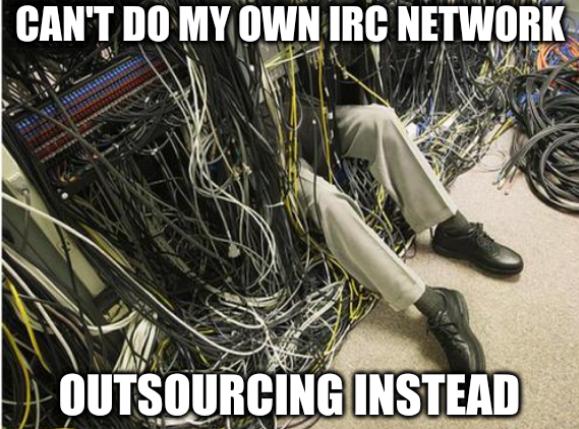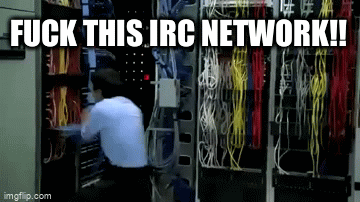
The video above was made in a rush (as usual; we almost always do videos before writing any text). It does not link to any article (by intention) and doesn't name any people or networks. The principle is what matters and counts. It's regretful to see that the FSF missed an important chance to regain independence and put itself at the hands of some people who don't wish the FSF to succeed. Unless the FSF changes its mission statement to their own worldview... commercial and/or political. Last year the OSI (or corporations that took over it) 'cancelled' the OSI's own co-founder, by misusing control of the mailing lists. It was about politics. Lessons learned since?

Date: This morning (an hour after making the above video) To: Richard Stallman Cc: [omitted, FSF]
Dear Richard,
It came to my attention some time last night that the FSF had decided to leap from one IRC network that it does not control to another network that it does not control. To make matters worse, it leaps from one collective of staff to the same collective of staff that, as reported to me back in April (I covered it in early May), was coordinating 'decapitation' attacks against the FSF. In fact, some openly showed their names -- affiliated openly with the IRC network -- by signing a petition to remove you: http://techrights.org/2021/05/08/communication-channels-cancel-mobbed/
I personally don't condone choosing any IRC network but making one's own, at the very least so as to avoid the 'clown computing' trap (surveillance, censorship, de-platforming etc.) or what you like to call "software substitute". At Techrights we moved to our own IRC network and we use a bridge to retain some level compatibility with the old network (where we had been for over 13 years). There's help at hand if the FSF and the GNU Project wish to provision/commission a server for IRC, managing all GNU projects and communities without risks associated with privacy violations, manipulations, and threats from unaccountable IRC 'cops'.
I am more than happy to help towards an outcome wherein the FSF (and FSF alone) is in control of its communications. Experience has shown that choosing one "master" over another "master" (as in networks that are third parties) is a short-sighted decision as owners can rapidly change. Policies change too. Moving users from one network to another isn't easy (in practice, logistically), so there was a window of opportunity last month.

